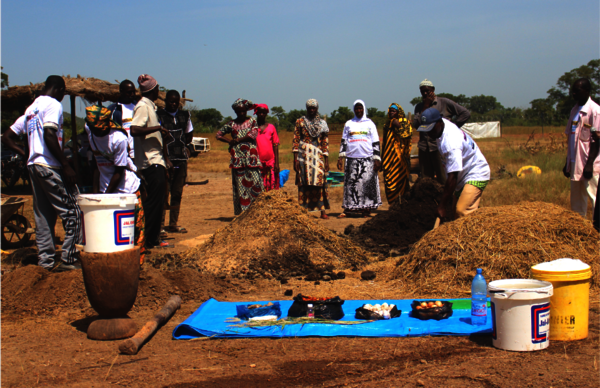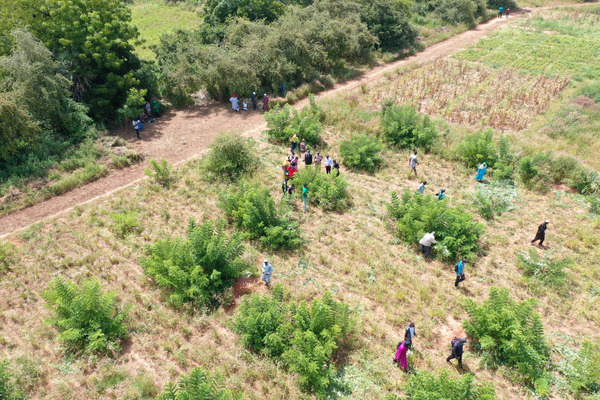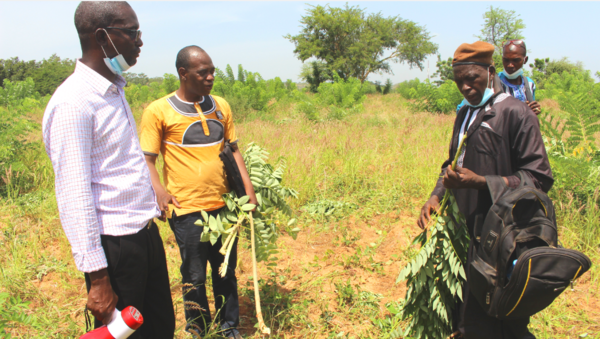This dissemination event ended with the second edition of the agroecological farmers’ fair in the commune of Ouelessegou and Tamala, organised by AMSD, the Malian Association for Solidarity and Development, in the framework of the SustainSahel project. The aim of this fair is to promote farmers’ knowledge and agroecological and agroforestry practices, thus enabling producers and breeders to integrate certain agroecological practices.
During this day, the women of Ouelessegou and Tamala were trained to prepare an organic fertiliser called Bokachi. “If producers are to make an agroecological transition, they must be accompanied and trained in alternative practices, such as the preparation of organic Bokachi fertiliser and the preparation of bio-pesticides to fight against insect attacks and others and to fertilise the soil”, explains Hamidou Almamy Diawara, President of AMSD.
The AMSD association wants to ensure that agroforestry and agroecology can be integrated into a circular fashion until producers understand that climate change is a handicap for sustainable development by integrating these concepts and practical solutions to feeding people with components adapted to their environment and accesible to all.
Given the geographical situation, some producers thought it was inappropriate to develop market gardening and cereal production in Ouelessegou and Tamala. The AMSD has shown the opposite: “Whatever the geographical situation, people must develop adaptation techniques, and this is what we have shared with the producers. In addition to agroforestry and agroecology, we have developed models of organic agriculture, fish farming, market gardening, and nurseries for reforestation campaigns each winter season,” says Almamy Diawara.
The AMSD intends to popularise these good practices, as the association believes they will enable the population to fight against poverty and reduce the negative impacts of climate change in these areas.
Written by: Ndeye Fatim Lô, Communication specialist at CSE.
Further information
Dissemination events in Senegal and Burkina Faso – October 2022
Farmer-to-farmer training videos translated into local languages – September 2022



